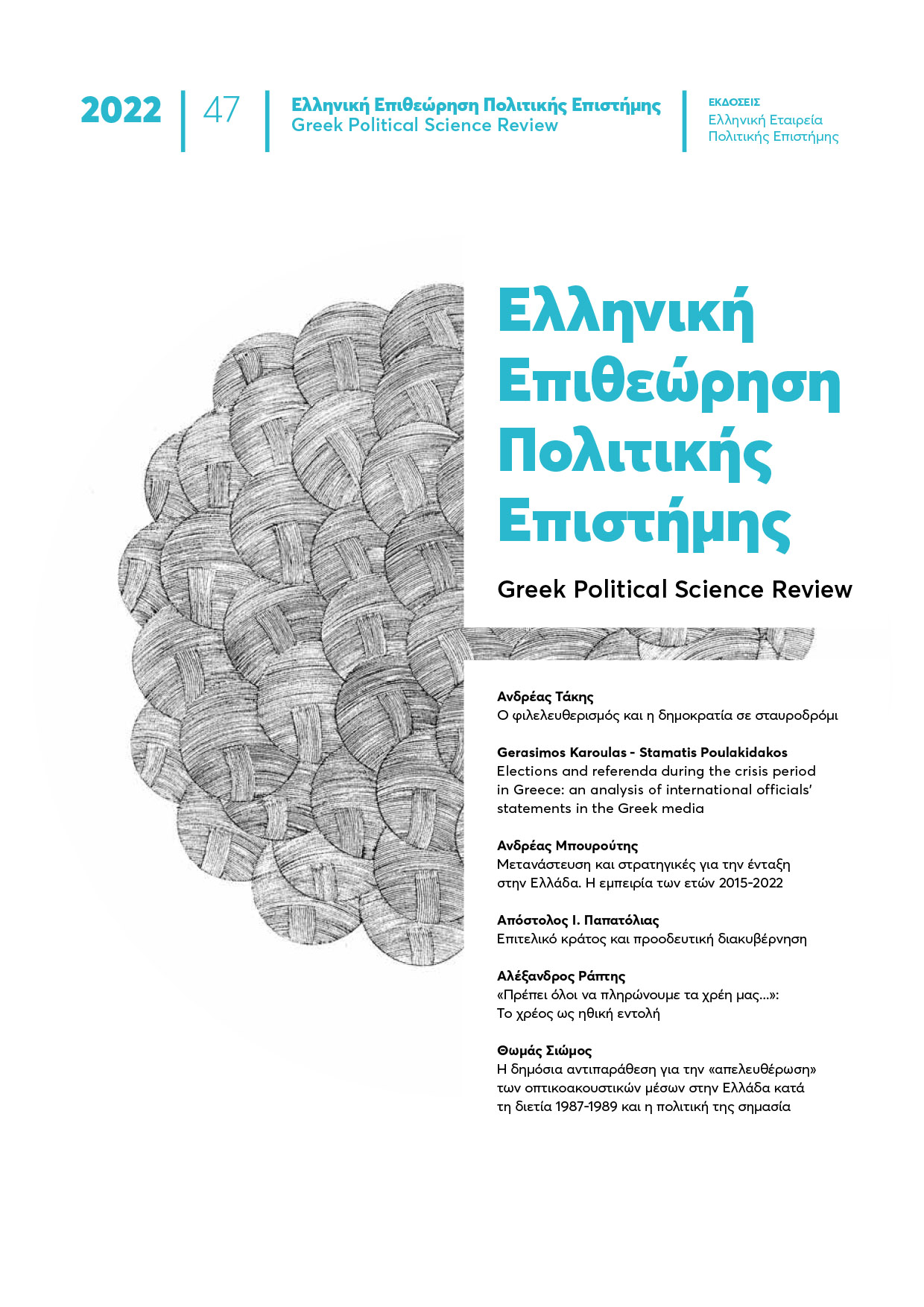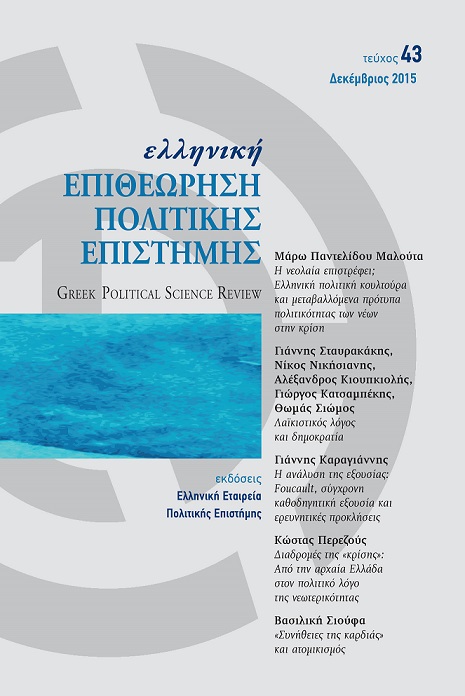Η δημόσια αντιπαράθεση για την «απελευθέρωση» των οπτικοακουστικών μέσων στην Ελλάδα κατά τη διετία 1987-1989 και η πολιτική της σημασία
Abstract
Η μελέτη εστιάζει σε μια πολιτική συγκυρία/στιγμή της Γ’ Ελληνικής Δημοκρατίας που θεωρείται κρίσιμη για την κατανόηση της στάθμης του πολιτικού ανταγωνισμού και του τρόπου της πολιτικής επικοινωνίας στην Ελλάδα. Αναλύονται οι λόγοι που διατυπώνονται με αφορμή τα γεγονότα της διετίας 1987-1989 που οδηγούν στην άρση του μονοπωλίου της δημόσιας ραδιοτηλεόρασης στη χώρα. Η έρευνα διερευνά γιατί η συγκεκριμένη πολιτική στιγμή ονομάστηκε .απελευθέρωση. και ποια η συμβολή της στην ιδεολογική ηγεμονία των φιλελεύθερων ιδεών σε θέματα σχετικά με τα μέσα επικοινωνίας. Η επίδραση στο πολιτικό σύστημα, οι ιδεολογικές συνδηλώσεις της λεγόμενης ραδιοτηλεοπτικής .απελευθέρωσης. που μεταπίπτει σε απορρύθμιση., η ανάδειξη του κρίσιμου ρόλου της κοινωνίας πολιτών, η ιδεολογική ηγεμονία φιλελεύθερων φωνών που πιέζουν προς μια ιδιωτική ραδιοτηλεόραση, χωρίς κατάλληλη προετοιμασία και επαρκές πλαίσιο, η στάση που τήρησε το σύνολο του πολιτικού κόσμου γύρω από το σχετικό δημόσιο διάλογο, καθώς και η πολιτική οικονομία των μέσων, συνιστούν ορισμένα από τα πεδία που προσεγγίζει το άρθρο. Αναλύεται ο λόγος του τύπου της εποχής, η πολιτική συγκυρία και η διαδοχή των γεγονότων από κοινού με το λόγο κρίσιμων, για το θέμα, πολιτικών παραγόντων και προσώπων, προκειμένου να οριστεί το αποτύπωμα της ιδιωτικοποίησης των ραδιοτηλεοπτικών μέσων στην Γ’ Ελληνική Δημοκρατία.
Article Details
- Come citare
-
ΣΙΩΜΟΣ Θ. (2022). Η δημόσια αντιπαράθεση για την «απελευθέρωση» των οπτικοακουστικών μέσων στην Ελλάδα κατά τη διετία 1987-1989 και η πολιτική της σημασία. Ελληνική Επιθεώρηση Πολιτικής Επιστήμης, (47), 129–157. Recuperato da https://ejournals.epublishing.ekt.gr/index.php/hpsa/article/view/31860
- Sezione
- Άρθρα

Questo lavoro è fornito con la licenza Creative Commons Attribuzione - Non commerciale - Condividi allo stesso modo 4.0 Internazionale.
Οι συγγραφείς θα πρέπει να είναι σύμφωνοι με τα παρακάτω: Οι συγγραφείς των άρθρων που δημοσιεύονται στο περιοδικό διατηρούν τα δικαιώματα πνευματικής ιδιοκτησίας επί των άρθρων τους, δίνοντας στο περιοδικό το δικαίωμα της πρώτης δημοσίευσης. Άρθρα που δημοσιεύονται στο περιοδικό διατίθενται με άδεια Creative Commons 4.0 και σύμφωνα με την οποία μπορούν να χρησιμοποιούνται ελεύθερα, με αναφορά στο/στη συγγραφέα και στην πρώτη δημοσίευση για μη κερδοσκοπικούς σκοπούς και με δικαίωμα τροποποίησης μόνο με παρόμοια διανομή (αν αναμείξετε, τροποποιήσετε, ή δημιουργήσετε πάνω στο υλικό, πρέπει να διανείμετε τις δικές σας συνεισφορές υπό την ίδια άδεια όπως και το πρωτότυπο).



